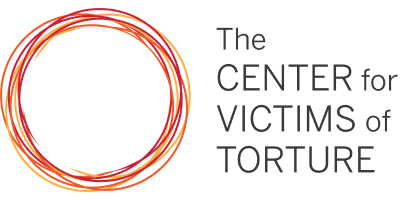6) Refugees and Asylum Seekers Face Barriers to Adapt to Life in the United States
Torture survivors are thrust into an entirely new culture upon arrival in the U.S. and must cope with these changes while experiencing symptoms of trauma and loss of identity, even many years after the abuse.
As CVT has reported, survivors are haunted by the experience of torture. Many find they are unable to stop thinking about the torture and must reckon with intrusive memories. They have frequent thoughts of suicide, deep depression and anxiety. Sleep rarely provides relief; nightmares are vivid, regular and terrifying. Survivors cross many triggers in their daily lives, such as the sight of armed personnel or something as simple as the sound of laughter, which can repeatedly bring back to life past traumas. Many also live with the chronic pain that results from having been beaten, bound, hung and any number of injuries inflicted by a torturer. All these affect survivors’ abilities to adapt to life in new countries and to begin rebuilding their lives.
In addition, many asylum seekers and refugees facing daunting challenges after arriving in the U.S. Limited access to services, language barriers, lack of housing, inability to work in one’s field, long wait for a work permit for asylum seekers, unfamiliarity with systems, and different cultural norms are amongst some of the potential challenges asylum seekers and refugees face, compounding past trauma.
Despite these hardships, CVT clients are amazingly resilient and regularly go on to heal and prosper in their new communities. Indeed, they include home and daycare staff, personal care attendants, delivery drivers, grocery store and other food supply chain employees, and poultry plant workers — many of the roles needed on the front lines of the pandemic to keep everyone healthy and safe.
